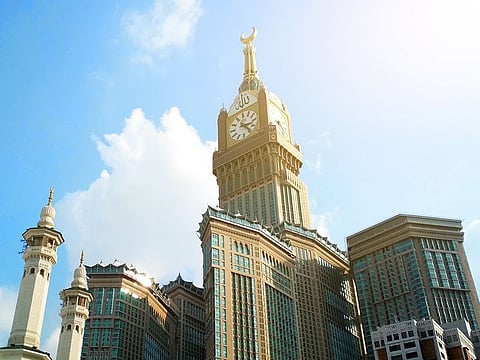Bridging Cultures: Insights from expats living in Saudi Arabia
Expatriates gain a deeper appreciation for cultural context in which they find themselves

Over the past few decades, thousands of expatriates have made their way to Saudi Arabia, with many spending a considerable amount of time in the country. Generally, these expats have kept to themselves, often remaining tight-lipped about their hosts and their experiences.
This discretion stems from a desire to respect their hosts and maintain harmonious relationships. On the other hand, many Saudis have a strong sense of pride in their culture, which can sometimes be interpreted as confidence. But are these accolades truly deserved, or are they merely a product of societal norms and peer reinforcement?
To find answers, one might turn to those who are not Saudis — the expatriates. Their perspectives could serve as a valuable measure of the country’s successes and areas for improvement. While not the sole measure, their views provide a unique and potentially enlightening yardstick by which to gauge the nation’s cultural and societal dynamics.
Saudi culture and society
Most expatriates in Saudi Arabia are guest workers who are there for a specific purpose and duration. Once their tenure concludes, they often move on to other opportunities. However, during their time in the country, they observe and experience life in Saudi Arabia first-hand. In the interest of maintaining their employment status, many expats tend to keep their observations to themselves.
But what if we could access their genuine thoughts about Saudi culture and society without fear of recrimination or repercussions? In this context, I have gathered several reflections from some resident expatriates, who have shared their insights on the condition of anonymity.
One expat reflects on the cultural perception of time, noting, “Why does time mean something different here than anywhere else? Having been raised to be punctual, I pride myself on being on time. Since moving to Saudi Arabia, I’ve realised that time is handled differently. Not everyone adheres to the same standards of punctuality, as different cultures and individuals may have varying perceptions of and approaches to time management.
Non-verbal communication
Another expat shares their observations about daily interactions, explaining, “I’ve noticed a unique communication style here. Sometimes, a shrug can be a common response, which I’ve come to interpret as a form of non-verbal communication. It’s different from what I’m used to, but it has its own place in the cultural landscape.”
Further insights reveal cultural nuances at social events, such as weddings. One expat recounts their experience at a Saudi wedding: “When approaching the buffet table, note that using cutlery is often bypassed. In many social gatherings napkins, often decorative, are seldom used.”
Another expat comments on the phrase “Insha-Allah” in response to invitations, saying, “You ask a Saudi colleague to come to your house for dinner, and the response is ‘Insha-Allah.’ What does this mean? Yes, no, maybe, or perhaps a polite refusal?”
These reflections offer an opportunity for mutual understanding and growth. Saudis who recognise these perceptions can use them as a basis for positive change, ensuring that their self-esteem is matched by genuine improvements in their cultural and societal interactions.
Likewise, expatriates can gain a deeper appreciation for the unique cultural context in which they find themselves, fostering greater harmony and respect.
Through open and respectful dialogue, both Saudis and expatriates can learn from one another, enriching their experiences and building a more cohesive and understanding community. By acknowledging and embracing these diverse perspectives, everyone can contribute to a more inclusive and welcoming environment in Saudi Arabia.
Tariq A. Al Maeena is a Saudi sociopolitical commentator.
Sign up for the Daily Briefing
Get the latest news and updates straight to your inbox



